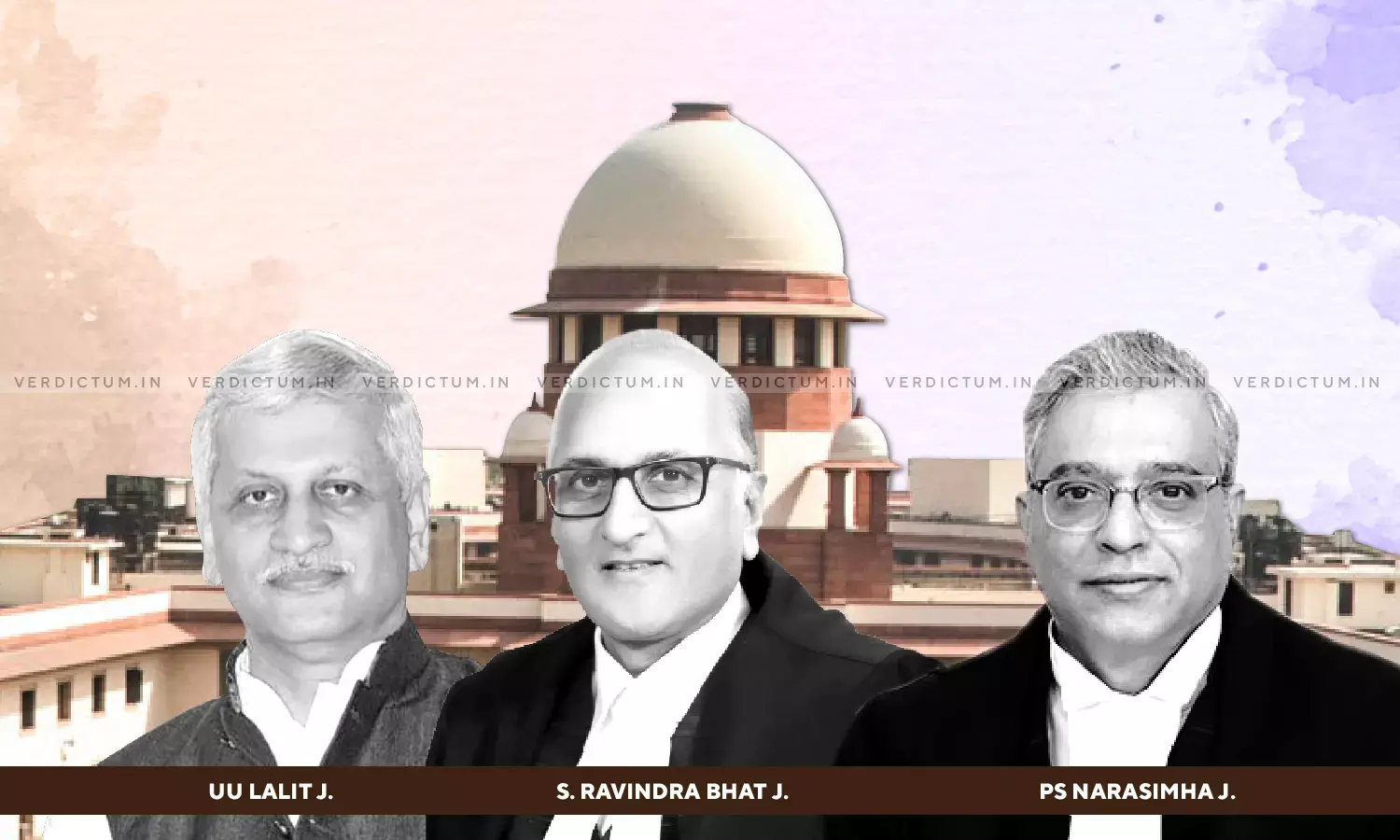When Regulations Or Schemes Change, Applicants Have No Inherent Right To Claim Benefit Under Old Policy - Supreme Court

A Supreme Court Bench of Justice Uday Umesh Lalit, Justice S. Ravindra Bhat, and Justice Pamidighantam Sri Narasimha set aside judgments and orders of the Allahabad High Court regarding the allotment of plots, on the basis that once the applicable rules change, the old rules could not be applied.
To that end, the Supreme Court opined that "There is authority for the proposition that when regulations or schemes, or policies change, applicants for their benefits have no inherent right to be considered under the old policy; rather the consideration has to be under the new regime, unless the latter contains an express stipulation to the contrary."
Senior Counsel Mr. K.V. Vishwanathan appeared on behalf of the Appellant and Senior Counsel Mr. Salman Khurshid appeared on behalf of the Respondents.
The Appellant had published a scheme for the allotment of industrial plots. The application forms for registration of the available plots were available with a designated bank upon payment. Apart from individuals, partnership firms were also allowed to apply for an allotment. The applicants were required to submit processing fees, registration fees, and other relevant financial and technical details. The allotment was to be made on the basis of interviews of registered applicants, by a screening committee, about the details of the project. The scheme was expressly open-ended and the Appellant could close it at any time.
The Respondents had applied to the Appellant for two plots. The Appellant decided to terminate the scheme based on the assessment of the feasibility of the scheme. This decision was published and made known to all concerned including the Respondent through the public domain, and the Appellant sought to refund the money deposited by the Respondent. Aggrieved, the Respondents approached the Allahabad High Court, contending that their applications deserved to be considered.
During the pendency of the petition before the High Court, the Appellant launched another scheme and the Respondents applied under this scheme as well, and a plot was allotted to them. However, this was not disclosed to the High Court. The High Court held that the Appellant must consider those applications in accordance with law for the purposes of allotment of the un-allotted remaining plots.
The Respondent complained of non-compliance with the original judgment and initiated contempt proceedings. In the contempt proceedings, the Court expressed its dissatisfaction and stated that third-party rights were being sought to be created to complicate the issue to suit the Appellant's purposes.
The Appellant filed an application contending that no plots were available under the old scheme, but this was rejected, and subsequently, the Review Petition was also rejected. The Appellant approached the Supreme Court.
Relying on cases like Delhi Development Authority vs. Pushpendra Kumar Jain, the Apex Court opined that an applicant or registrant of a scheme has no right to insist that they should be provided allotment under the scheme.
Regarding the contempt proceedings, the Supreme Court opined that old rules could not be applied once new rules were made applicable. It found that the Respondents could not have claimed that its application had to be dealt with in terms of the old scheme.
To that end, the Court opined that "The interpretation placed by the High Court, that there were existing plots, which could have been dealt with under the old scheme is entirely misplaced. In such events, given that the legality of closure of the old scheme attained finality, there was no question of any land or plot being attached or belonging as it were to an old scheme. If any land or plot, or industrial unit were in fact "left-over" it was always up to the development authority or agency (here Noida) to determine how they are to be dealt with. The directions issued in contempt proceedings, which are subject matter of another appeal, are accordingly held erroneous."
Accordingly, the Supreme Court set aside the judgment and orders of the High Court and allowed the appeals.
Click here to read/download the Judgment

